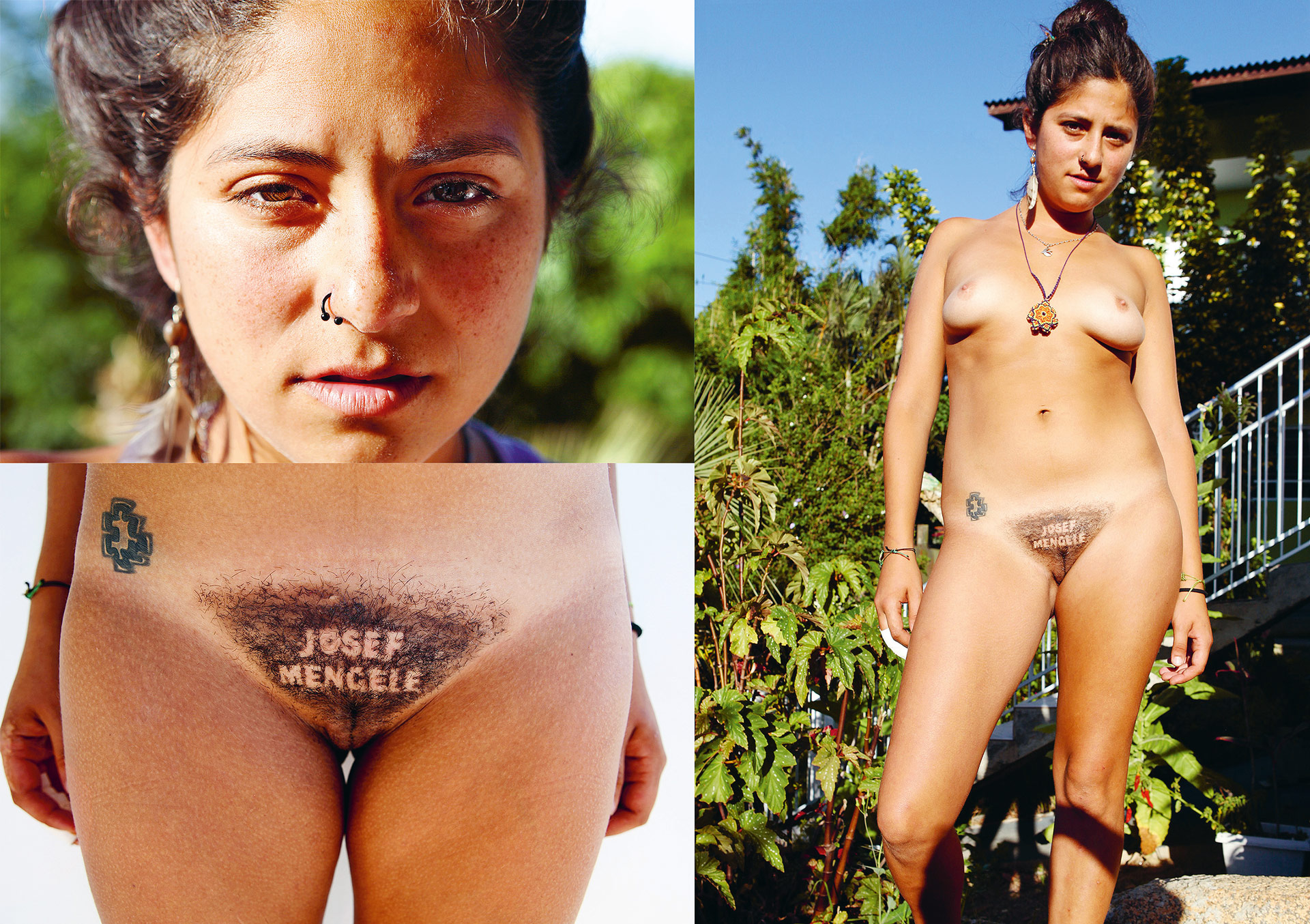Joseph Mengele drowned when swimming in the ocean in Brazil as a free man. That is a defeat for the system of justice. After the war the torturers lived without stress, they didn’t feel defeated and their crimes and lives seem to be much more attractive compared with those that won or survived. That is true especially for the countries of South America which eagerly gave asylum to those Nazis. The climate of these places resembles an ideal, paradise- like place in which you can spend the rest of your life as a reward. His sadism was of sexual nature which he managed to extend onto the Brazilian beach – the clinical normality of sadism allowed him to make a touristic brochure out of the beaches of South America which became a reward for serving his duties well.
The tragic becomes banal, touristy. Everyone who allowed their hair to be removed (Brazilian waxing) in that project, was aware of the issues of the related history associated with these names. For them the problem seems to be completely abstract because in Brazil hair removal with the use of stencils with plant patterns, Mickey Mouse or name patterns commemorating someone’s birthdays is very popular. It is not problematic and permanent like a tattoo which stays with us for the rest of our life. Waxing is not associated with any oppression, similar to the Brazilian beach.
This project is a series of photographs with depilated names and surnames of Nazis who murdered and performed medical experiments on people during the world war ii. They escaped responsibility for war crimes and found shelter and care in Brazil or other countries of South America. In the photos, apart from depilated surnames, you can also see portraits of the person whose hair is being removed, the accent is put on the eyes which is the body part on which Mengele worked with great engagement and passion.




